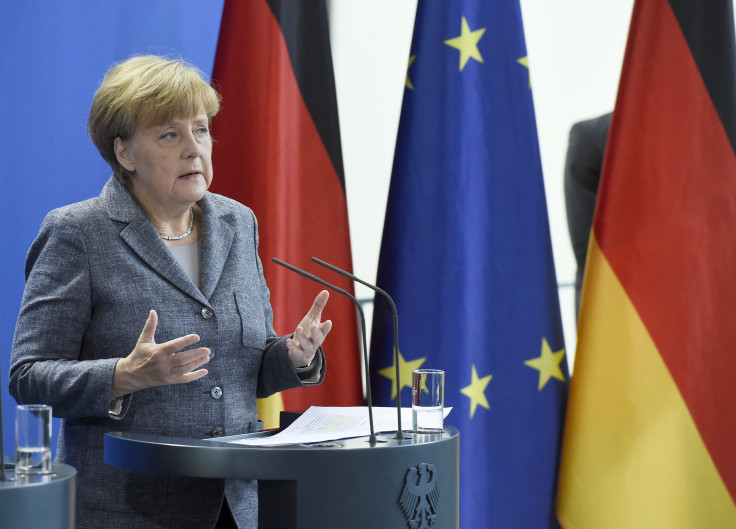Europe Refugee Crisis: Germany Pledges $6.7B To Aid Asylum Seekers

The German government announced Monday that it would spend an extra 6 billion euros ($6.7 billion) to cope with the ongoing influx of refugees into the country. The announcement came after Sunday’s talks in Berlin between the two parties that make up Chancellor Angela Merkel’s ruling coalition, according to media reports.
Germany, Europe’s largest economy, is expected to take in a record 800,000 refugees this year. Over the weekend, after Austria and Hungary agreed to relax rules requiring refugees to register an asylum claim in the first European Union country they reach, approximately 18,000 refugees arrived in Germany, and, in the month of August alone, 100,000 asylum seekers were registered in the country.
The German government, which has also come under pressure from domestic far-right groups that have urged restrictions on the entry of refugees, has now agreed to give 3 billion euros ($3.3 billion) to federal states and local councils, and is planning to free up another 3 billion euros for federal programs, such as benefit payments for asylum seekers.
However, even with the allotment of additional funds, the country is unlikely to sustain the influx of refugees at the current pace. According to a recent report by Germany’s Frankfurter Allgemeine Zeitung newspaper, the financial cost of housing refugees in the country is likely to rise up to 10 billion euros ($11 billion) by the end of the year.
Moreover, Merkel’s decision to allow refugees stranded in Hungary to enter Germany has caused a rift within her conservative bloc, with her allies in the Christian Social Union (CSU) -- the Bavarian sister party of Merkel’s Christian Democratic Union -- reportedly calling it “the wrong decision.”
"There is no society that could cope with something like this,” CSU leader Horst Seehofer reportedly said. “The federal government needs a plan here."
The refugee crisis, triggered by violent conflicts in the Middle East and Africa, has even pushed humanitarian agencies to the brink of bankruptcy. On Sunday, Antonio Guterres, the United Nations high commissioner for refugees, warned that the U.N. agency was “financially broke.”
“If you look at those displaced by conflict per day, in 2010 it was 11,000; last year there were 42,000. This means a dramatic increase in need, from shelter to water and sanitation, food, medical assistance, education,” Guterres told the Guardian. “The budgets cannot be compared with the growth in need.”
© Copyright IBTimes 2024. All rights reserved.












